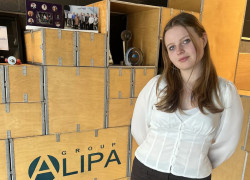The psychology of debt
76% of respondents in Luxembourg have taken on a loan from a bank or financial institution by choice (versus 63% for all respondents in Europe).
With more payment options available than ever before, it is getting increasingly difficult to understand what constitutes debt and what doesn’t.
The two latest ING surveys look at debt management behaviour and attitudes of people in 13 countries across Europe. Just under 26,000 people answered questions about their attitude to debt, providing insight about how debt awareness and money management has shifted during the uncertainty imposed by the pandemic. In Luxembourg, 526 and 506 people were surveyed in two survey waves. There is no mentioning of this further; is there a difference pre and post covid? Otherwise why mention this?
What payment options actually constitute debt?
Some debt is not easily recognisable and people don’t always define debt the same way. The number and variety of ways to pay are becoming integrated into a rapidly evolving financial system. Consumers now have many different options. These include delayed means of making payments such as buy now pay later, try before you buy and interest-free shopping. Each option could technically be considered debt. Miss a payment and you end up in arrears. Yet in each case, 1 in 2 Luxemburg residents said they would not feel like they were taking on debt if they used that method of payment delay.
In Luxembourg, there seems to be less awareness that certain kinds of payments are in fact, debt. A third of Luxembourg’s residents say they wouldn’t feel like they were taking on debt if they selected a “try before you buy” payment scheme.
There is a high degree of uncertainty in responses with people unsure whether for example “buy now pay later” or “try before you buy” options actually constitute debt.
But debt is more than delayed payments at the checkout. Mortgage debt aside, in May ’20, among those who were happy to tell us about their more traditional forms of debt, the most popular types were personal loans from banks / governments (52%), borrowing from a vendor (22%), student debt (15%), regular account overdrafts (14%), credit cards unpaid each month (10%), and loans from friends or family (7%). I would mention this earlier because it is the first type of debt I am thinking of.
In Luxembourg, only 21% of people with a loan from a financial institution said they did not have a choice but to take on this debt, whereas in Europe, 33% of respondents with a financial institution loan said they needed to go into this type of debt.
What best describes your reason for taking on this debt?
Interestingly, those with higher income were more likely to feel they had discretion when going into debt. Among those households earning more than EUR 7,000 per month, 81% of European respondents said they took a loan from a recognized institution by choice, while just 56% of those earning between EUR 500 and EUR 1,000 said the same.
The delayed payment attraction
According to behavioural science research (see Dan Ariely’s article “why don’t people manage debt better” here) when the debt is not coming from a bank loan, people seem to easily convince themselves that it is not, in fact, debt. “Buy now pay later” delays the pain of facing the payment. A cognitive bias leads us to underestimate the future pain of paying what we owe. And vendor financing does not come with a repayment schedule (like a bank loan) so it’s easier for people to fool themselves.
A study by Fe?idhlim McGowan, a PhD candidate at Trinity College in Dublin (see the study here) shows people also tend to make inaccurate judgments about long-term costs by, for example, underestimating the accumulations of costs and end up paying more for a product over time than it would cost up front. As an example, two phone options -- a) a “free" phone with services (i.e. calls, texts, data) for €50 per month for two years (total cost €1,200), or b) pay €500 f or the phone now and €20 per month for two years of services (total cost €980) are compared.
Debt is useful
Debt can be a useful tool in household management -- but our survey suggests it gets a bad reputation in many cases, probably related to whether people felt they had a choice in taking it or not.can we conclude this? From what I read it is also because they don’t know that certain delayed payments are debt.
Debt recognition is the first step in managing debt well. Indeed, according to the survey 38% of the population in Luxembourg declare running out of money between pay periods, and also 38% of the total population say that they would need less debt to feel in a comfortable financial position.
The way debt is managed unsurprisingly impacts whether people fall into the group who find debt useful, or ultimately restrictive. Having a clear view on the cost of delaying a payment, of what is due and when it is due are all helpful to avoid falling in arrears. Technology can help resisting procrastination and ensuring repayments are not forgotten. In Luxembourg, 69% of the respondents who declared not having paid any bill late in the past 12 months actually paid the bill immediately, although they could have waited.
Full presse release available here
Communiqués liés
Gcore Recognised as Highly Commended in the Industry Innovat...
Gcore acknowledged for successful launch of first AI speech-to-text solution for...
MOMENTUM 2024 drives sustainable solutions forward
Deloitte’s annual MOMENTUM Conference fosters a dynamic exchange between indus...
Nouvelle recrue au service client de NO-NAIL BOXES : Nadine ...
NO-NAIL BOXES, le fabricant luxembourgeois de caisses pliantes en bois contrepla...
Réseau ETRE est le nouveau lauréat du Degroof Petercam Fou...
Réseau ETRE remporte la sixième édition du Degroof Petercam Foundation Award....
Le Groupe ALIPA accueille une étudiante dans le cadre du Jo...
ALIPA Group, spécialiste du levage et de l’emballage industriel, a accueilli ...
Quintet lance le premier d’une série de nouveaux fonds e...
La banque privée européenne lance un fonds d’actions américaines sous gesti...
Il n'y a aucun résultat pour votre recherche







